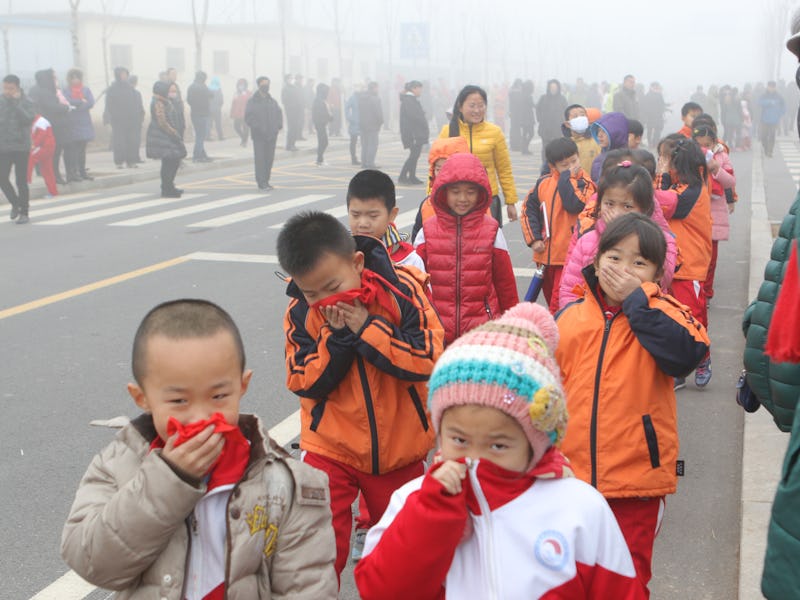Researchers Claim Solvable Air Pollution Problem Kills 6.5 Million People a Year
In some parts of the world, breathing is a health hazard.

Air pollution prematurely ends the life of 6.5 million people around the world every year, according to a new report from the International Energy Agency. It’s the most significant threat to human health after high blood pressure, poor diets, and smoking, according to the authors. But don’t be fooled — these negative consequences are not evenly distributed around the globe. Wealthy people are far less likely to suffer the effects of toxic gases and smoke particles in the air. And this is as true in rural areas as in cities. Among the worst off globally are the rural poor, who may not have access to electricity and are therefore more likely to burn materials for heat and light within the home.
Air pollution is a particularly compelling health hazard to study because it is intrinsically linked to industry, location, and, therefore, the issue created by inequality. The problem affects the poor, vulnerable, and disenfranchised more than anyone else. Not only are children, the elderly, and the infirm more vulnerable to physical effects, but people from poor countries and communities are much more likely to be exposed. That’s because people with few resources are less likely to have access to clean fuel or other energy sources. Of all of the years of lost life due to household air pollution globally, just four percent represent people living outside of Africa, India, China, and other developing Asian countries.
So poverty is the most significant predictor of dying early from exposure to air pollution, but on the other hand, in an urban environment, the most wealthy people cannot escape an air pollution problem. Yes, they will have better access to clean indoor air, but no one would prefer to live in a city where you can’t go outside. The fact that city pollution affects both the rich and poor in large Chinese cities, for example, is probably part of the reason why that country has taken such significant steps to address the problem, becoming a world leader in renewable energy investment. Of course, it’s worth noting that while China’s urban population as a whole bears the burden of that country’s massive manufacturing industry, those factories and the pollution they produce wouldn’t exist without runaway demand for cheap manufactured products around the world.
Air pollution and climate change are similar issues because they are both caused primarily by the burning of fossil fuels and other combustible materials. They’re also different in an important way. Because air pollution most affects the people close to the source of pollution, incentives are right for the problem to be addressed. Community residents might care more about local jobs at a factory than the greenhouse gas emissions it produces, but they are likely to change their tune if the industry is raising a literal stink.
Because air pollution is a more localized problem, it shouldn’t take huge efforts of international diplomacy to address it. In fact, the authors of this new report found that significant gains would be made if countries upped their current clean air investments by just seven percent.